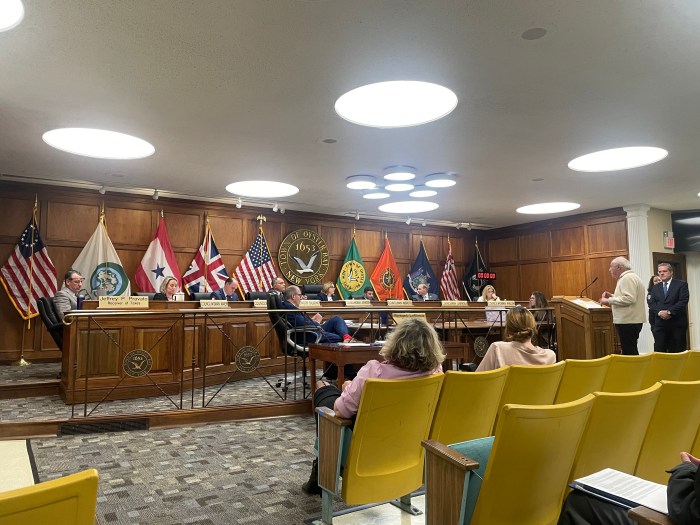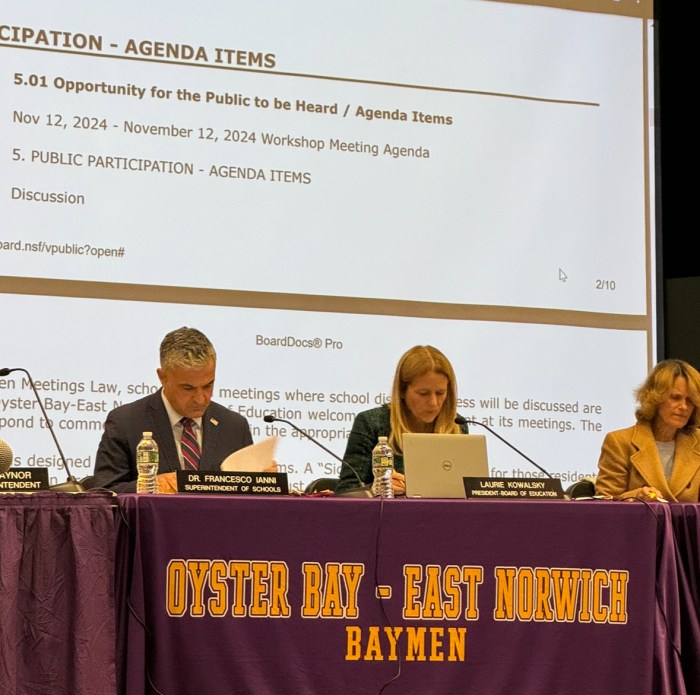From June 28 through July 6, 35 aspiring performers will gather in the village of Oyster Bay to take part in the third season of Oyster Bay Music Festival, a nine-day intensive musical immersion and concurrent free live classical music festival. Ranging in age from 11 to 24 and hailing from communities throughout Long Island and greater New York, these high-level classically-trained musicians will spend their days coaching with expert faculty, rehearsing solo and chamber music, and taking seminars on audition preparation, performance psychology, body awareness, and performance presentation.
Unlike other programs for young musicians, however, Oyster Bay Music Festival’s students spend the greater part of each day performing for the community. The festival hosts 20 public events during the week as well as six programs at senior centers and several “pop-up” concerts in the village, including daily performances at Gulden’s Cafe, a local favorite.
“Our students perform a lot, often twice a day,” says Lauren Ausubel, co-director and flutist. “This gives them unparalleled opportunity to develop their performance skills, to get comfortable in front of an audience, and to realize that, without the audience, there is no concert.”
Unique to Oyster Bay Music Festival is its dedication to the art of performance and the revival of classical music as a vital part of community.
“As performers and teachers we continually confront the perception that classical music performances are stuffy and inaccessible,” says co-director Pippa Borisy, pianist and director of the Great Neck Music Conservatory. “We want to create an experience of live performance, rooted in the community of Oyster Bay, that is fun, enlightening, and full of surprises.”
Classical music will appear in unexpected places over the course of the week: top among them might arguably be Oyster Bay’s famed Cruise Night on Tuesday, July 9, where Steinway & Sons will park a concert grand in front of 20th Century Cycles for a program called “Vintage Cars, Vintage Music;” a concert titled “Classical, with Attitude” featuring musical collaborations with special guests from Eglevsky Ballet at Christ Church on July 2; or a favorite family event from last year called “Clarinets, Clavichords and…Cucumbers?,” a concert and “vegetable orchestra” workshop with Dale Stuckenbruck at Raynham Hall Museum on Saturday, July 5.
OBMF partners with Oyster Bay Historical Society to present “Dead Composers, Living Musicians,” classical music masterpieces performed with youthful insight and vigor, on Monday, June 30; and “Your Roots are Showing: Folk Traditions in Classical Music” on Wednesday, July 2. At Raynham Hall Museum OBMF features French music, “Après-midi in the Salon,” on Thursday, July 3.
An early musical celebration of Independence Day takes place at Christ Church on July 3 with a program called “I Hear America Singing.” New this year is the Festival’s interest in the natural wonders of North Shore Long Island: an open “Found Sounds” Jamboree and Instrument Making Workshop at Beekman Beach at 2 p.m. on July 4 and “Songs of the Sea,” classical music inspired by the sea nestled beside the beautiful Ida May Project on Saturday, July 5 at The Waterfront Center.
The festival kicks off on June 28 at Christ Church with “Upbeat,” an Opening Festival Concert and Reception; and ends in the same location with a concert entitled “A Fitting Coda” on July 6. All concerts are free and designed for all ages.
Co-director Sarah Hoover, soprano, professor at Hofstra University and music journalist, has long recognized the need to reach out in new directions. “If classical music is going to remain a viable art form, not just in urban centers and established concert halls, all of us who perform and teach performers must build real relationships with our audiences.”
To build these connections, festival directors and students will share anecdotes and engaging “musical game shows” during concerts, and students will be coached in how to talk with audiences and write their own program notes.
“What we can share are the stories about classical music – about the compositions, the composers, the time period, the people who performed or heard the music,” says Hoover. “These stories help us see how relevant and alive classical music still is today. They are our own stories.”



























